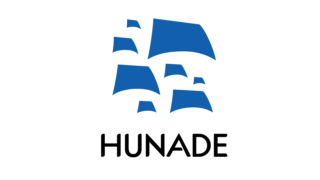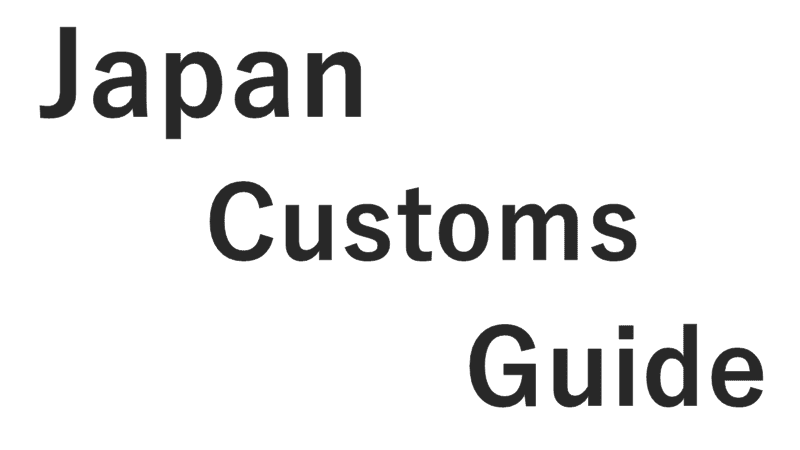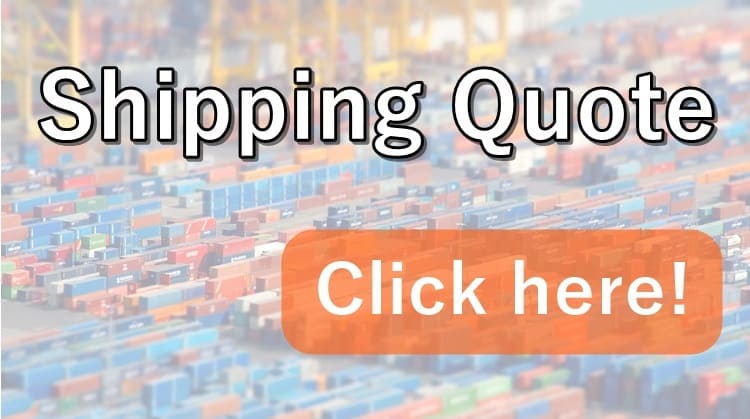This article is a compilation of the knowledge that foreigners living in Japan need to
acquire.If you need international transportation or consultations,
please contact us using the contact form.
- Japanese Customs Clearance System
- Relevant agencies
- Import-related laws
- Representative laws and items
- How to check import tariffs
- HS code inquiry method (Advance Ruling)
- Prohibited imports
- General import flow(Procedures)
- 1.Carrying-in at the arrival of the ship
- 2.Import customs clearance / brokers
- 3.【After import services】Japanese inspection and warehousing
- Major sales methods in Japan
- Japanese business customs and market research
Japanese Customs Clearance System
Relevant agencies
First of all, we would like to introduce various relevant agencies that are required for
trading.
| Customs | It is an agency that declares the import and export of cargo. |
| Food quarantine station | It is an agency that examines food in import and export cargo. |
| Plant protection station | It is an agency that examines plant-related products among import and export cargo. |
| Statistics Bureau, Ministry of Finance | This agency can check the import/export data. |
| JETRO | This organization gives advice when exporting from Japan. (Available for free) |
| MIPRO | This organization gives advice when importing to Japan. (Free usage fee) |
| Japan Chamber of Commerce and Industry | This is the organization that applies for EPA. |
| EPA consultation desk | This is the organization that consults with EPA. |
Opening hours and holidays of each agency
In the case of customs, the reception time varies depending on the government office of the filing destination and the content to be declared. Basically, Saturdays, Sundays and public holidays are holidays, and the office is open from 8:30 to 17:15 on weekdays. If you wish to have a time or day of the week other than that, you can apply for the opening of the agency. In addition, other agencies are basically open from 8:30 to 17:30 on weekdays.
Import-related laws
The following laws are relevant when importing cargo into Japan. It is subdivided according to the item to be imported, and there are laws related to pre-import and laws related to domestic sales after import.
- Customs-related Laws (Customs Act, Act on Temporary Measures concerning
Customs, etc.) - Food Sanitation Act
- Plant Protection Act
- Act on Domestic Animal Infectious Diseases Control Law
Representative laws and items
| Name | Overview | Representative items | |
| Regulations | Customs | Customs | |
| at the time of import | Food Sanitation Act | Foods | Baby goods,tableware, food-contact appliances and containers, food in general, vegetables, fruits, additives, etc. |
| Liquor Tax Act | Liquors(alcohol) | Wine, beer, etc. | |
| Plant Protection Act | Plants | Fruits, vegetables, unroasted coffee beans, types (seeds are also relevant), spices | |
| Act on Domestic Animal Infectious Diseases Control | Meat and dairy products | Meat (beef jerky, etc.), cheese, butter, etc. | |
| Washington Convention | Products from endangered species | Leather goods, cacti, etc. | |
| Trademark | Goods that infringe the rights of others | Brand bags, etc. | |
| Relationship after import | Food Labeling Act | Obligation to attach labels to foods | Food for retail sale in general |
| Household Goods Quality Labeling Act | Obligation to label apparel products | Apparel products for retail sale in general |
How to check import tariffs
There are two ways to check import tariffs. You can check the tariff rate in Japan by any
method you like. Items with high tariffs in Japan include leather products, knit products,
peanuts, konjac corms, butter, and honey.
Import tax tools(calculator)
If you want to use a simple calculation tool for Japanese tariff rates, please use the tariff calculation tool.
HS code inquiry method (Advance Ruling)
To find out the HS code, you can contact from the customs page. Advanced ruling includes oral and paper answers. In the case of a paper answer, at the time of actual import, the content of the advanced ruling will be applied with priority. Moreover, (there is no difference in HS code), on this page, you can also see the contents of past advanced ruling.
see more>>Advance Ruling
Prohibited imports
Japan has “banned” or “restricted” some items. Typical prohibited items are as follows. In addition, even if the food contains prohibited additives, it cannot be imported. Representative examples of restricted products are as follows.
- Alcohol
- Pharmaceuticals
- Cosmetics, etc.
A “liquor tax license” is required to import alcohol, and a “specialized license” is required to import pharmaceuticals and cosmetics. If you do not have a license, you will not be able to sell imported cosmetics or pharmaceuticals in Japan.
General import flow(Procedures)
Next, let’s check the general import flow! Here, it is assumed that imports are made by ship rather than imports of parcels.
- Carrying-in at the arrival of the ship
- Import customs clearance
- After import
1.Carrying-in at the arrival of the ship
When the ship arrives in Japan, the luggage will be unloaded. The timing is the date of arrival(ETA). When the cargo is unloaded, in the case of FCL, you can immediately declare the import. In the case of LCL, you can file your tax return one day later. Use the pre-arrival declaration system to receive your cargo as soon as possible.
*Free time is 5days from next day of ETA.
2.Import customs clearance / brokers
You can also declare import customs clearance yourself. However, since the procedure is complicated, commonly people rely on a specialized agent (customs broker). Among agents, there are also AEO certified place. (Click here to find the place) If you choose an AEO agent, you can shorten the time to pick up the cargo.
The following five documents are required for import customs clearance.
- Invoice
- Packing list
- B/L (Bill of Lading)
- Arrival Notice
- Certificate of origin (optional)
Once you have all the necessary documents, you will be subject to import examination. A customs computer will perform the examination, and if the actual import is small or the amount is incorrect, a “customs inspection” will be carried out. Customs inspection is compulsory and the importer is responsible for all costs.
Customs clearance time?
This import customs clearance (pre-arrival declaration) is possible at any time after the arrival notice (documents) has been issued. Pre-arrival declaration can significantly reduce
the time it takes to pick up your cargo. At the earliest, you can pick up the cargo on the day
of arrival or the next day.
Customs Clearance Fees & Charges(General)
- Customs fees 11,800 JPY~
- Fee 10,000 JPY~
- Customs inspection costs 25,000 JPY~
- Arrival Notice Cost
- Customs duty and sales tax
- Drage fee
Contact customs with email or tel?
You can contact here to Tokyo Customs.
List of laws and regulations in Japan
In Japan, there are two regulations, one is the regulation at the time of import and the other
is the regulation at the time of domestic sales after import. If you sell your product in Japan,
you also need to check the regulations for domestic sales in Japan.
Example: Smartphone → Radio Law
- Time of imports
- Time of domestic sales after import.
3.【After import services】Japanese inspection and warehousing
If you have successfully received the import license, the package will finally be transported to Japan and delivered to the warehouse. There are three things to think about at this time.
- An agent who picks up cargo from the port
- Work such as inspection and labeling
- Arrangement of delivery destination warehouse
For example, in Japan, Amazon FBA warehousing, OpenLogi, and other warehousing companies near the port provide warehousing services. If you are a foreigner, it is better to use Amazon or OpenLogi first.
However, if you want to use these warehouses, you naturally need a company to pick up the cargo from the port. In addition to simply picking up the cargo, it is also necessary to inspect the cargo for damage. If necessary, there is also labeling work to obey the domestic laws and regulations.
- Pick up the cargo from the port after getting the import license.
- Inspect the picked up cargo.
- Perform the necessary labeling work on the inspected cargo.
- Deliver the cargo in step 3 to Amazon FBA and OpenLogi
Steps 1 to 4 will prepare the product for sale in Japan for the first time.
Can your trading
company handle these steps? If not, consult an expert!
Major sales methods in Japan
There are several ways to sell products in Japan. The following four are representative ones. The last 4th method is to wholesale the products to the actual stores in Japan. Of these, it has the highest difficulty level and it is difficult for foreigners to perform. However, in Japan, EC makes up 10% while actual stores account for 90%, so once you start trading, it will be a very huge and stable business.
- Amazon
- SHOPIFY
- BASE
- Sales in actual stores
Japanese business customs and market research
Finally, we will explain Japanese business customs and market research methods. In Japan, the distribution channels are complicated: manufacturer → wholesaler →intermediate wholesaler → retailer. If you want to sell in actual stores, be aware of these distribution channels and carefully consider where to approach.
For example, you are trying to wholesale a product to major retailers. In this case, it is often better to contact the agents that already sell the item to the retailers and approach from there, rather than approaching the retailer’s buyer directly. (in reality, approaching the agents listed on the label of the product displayed at the retail store)
If you want to research the Japanese market and needs, use magazines (mono magazines,etc.), weekly magazines, bookstores with large shelves, Amazon rankings, Rakuten rankings, etc.
That’s all! We hope it will be useful for your trading company. If you need delivery, inspection, warehousing, etc. on the Japanese side, please contact us from here. (English and Chinese are available.)

 この記事をお気に入りに登録
この記事をお気に入りに登録
カテゴリ
タグ一覧
新着記事の一覧
記事を検索する
| 種別 | 積み地 | 揚げ地 | 品目 | 輸送モード |
| 法人 | ブリスベン | 成田 | マヌカハニー | 海上輸送 |
| 法人 | 上海 | 名古屋 | 革製品 | フェリー輸送 |
| 法人 | 広州 | 浜松 | ガラスフィルム | LCL |
| 法人 | ブリスベン | 成田 | マヌカハニー | 海上輸送 |
| 法人 | 上海 | 名古屋 | 革製品 | フェリー輸送 |
| 法人 | 広州 | 浜松 | ガラスフィルム | LCL |





 目次
目次


